Introduction to Oceanography
- Definition: Oceanography is the study of the physical, chemical, biological, and geological aspects of the ocean.
- Importance: Understanding the ocean is crucial for understanding Earth's climate, marine life, and the planet's overall ecosystem.
Sub-disciplines of Oceanography
- Physical Oceanography: Focuses on the physical properties and dynamics of the ocean, including waves, currents, and tides.
- Chemical Oceanography: Investigates the chemical composition of seawater, including the distribution of elements and compounds.
- Biological Oceanography (Marine Biology): Studies marine organisms, their ecosystems, and their interactions with the marine environment.
- Marine Geology: Examines the geologic features of the ocean floor, including underwater mountains, trenches, and the processes of sedimentation.
Key Concepts in Oceanography
- Salinity: The concentration of dissolved salts in seawater, which affects its density and plays a role in ocean circulation.
- Temperature: Variations in ocean temperature influence the distribution of marine species and ocean currents.
- Ocean Currents: Movements of ocean water driven by factors such as wind, temperature, and the Earth's rotation, which have significant impacts on climate and marine life.
- Marine Ecosystems: The diverse habitats and communities of organisms found in the ocean, including coral reefs, kelp forests, and deep-sea vents.
- Plate Tectonics: The study of the movement and interaction of the Earth's lithospheric plates, which shapes the ocean floor and causes phenomena such as earthquakes and volcanic activity.
Human Impacts on the Ocean
- Overfishing: The depletion of fish populations due to excessive and unsustainable fishing practices.
- Pollution: The introduction of harmful substances such as plastic waste, oil, and chemical pollutants into the ocean, which can harm marine life and ecosystems.
- Climate Change: The warming of the ocean and its effects on sea level rise, ocean acidification, and the frequency of extreme weather events.
◂Biology Worksheets and Study Guides High School. Invertebrates
Worksheet/Answer key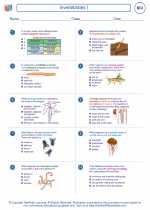 Invertebrates I
Invertebrates I  Worksheet/Answer key
Worksheet/Answer key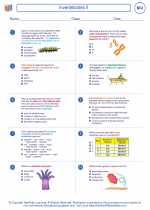 Invertebrates II
Invertebrates II  Worksheet/Answer key
Worksheet/Answer key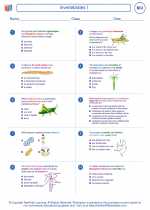 Invertebrates I
Invertebrates I  Worksheet/Answer key
Worksheet/Answer key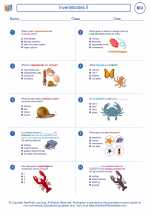 Invertebrates II
Invertebrates II  Worksheet/Answer key
Worksheet/Answer key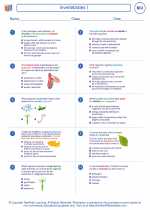 Invertebrates I
Invertebrates I  Worksheet/Answer key
Worksheet/Answer key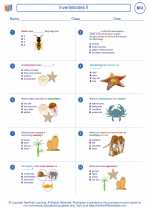 Invertebrates II
Invertebrates II  Vocabulary/Answer key
Vocabulary/Answer key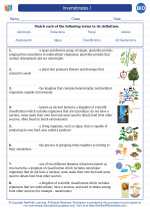 Invertebrates I
Invertebrates I  Vocabulary/Answer key
Vocabulary/Answer key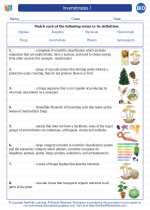 Invertebrates I
Invertebrates I  Vocabulary/Answer key
Vocabulary/Answer key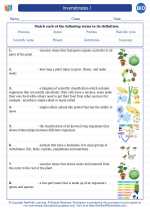 Invertebrates I
Invertebrates I 

 Worksheet/Answer key
Worksheet/Answer key
 Worksheet/Answer key
Worksheet/Answer key
 Worksheet/Answer key
Worksheet/Answer key
 Worksheet/Answer key
Worksheet/Answer key
 Worksheet/Answer key
Worksheet/Answer key
 Vocabulary/Answer key
Vocabulary/Answer key
 Vocabulary/Answer key
Vocabulary/Answer key
 Vocabulary/Answer key
Vocabulary/Answer key

The resources above cover the following skills:
Concepts of Life Science (SC1, SC2, SC3)
The student demonstrates an understanding of the structure, function, behavior, development, life cycles, and diversity of living organisms by describing the structure-function relationship